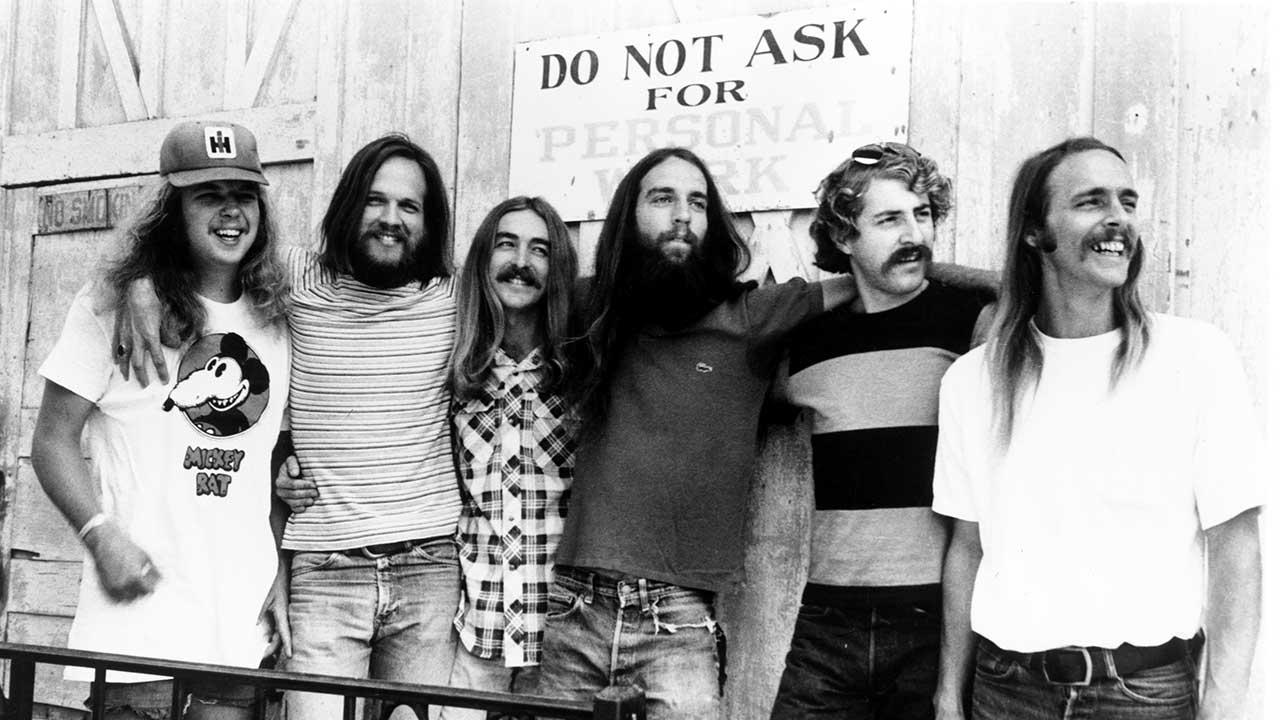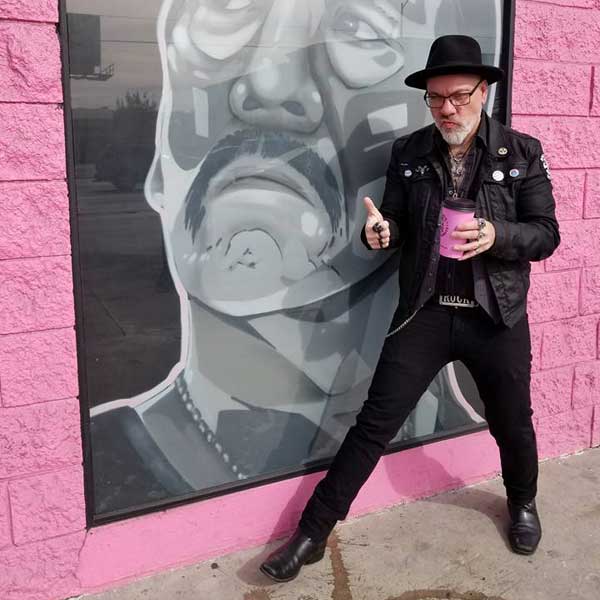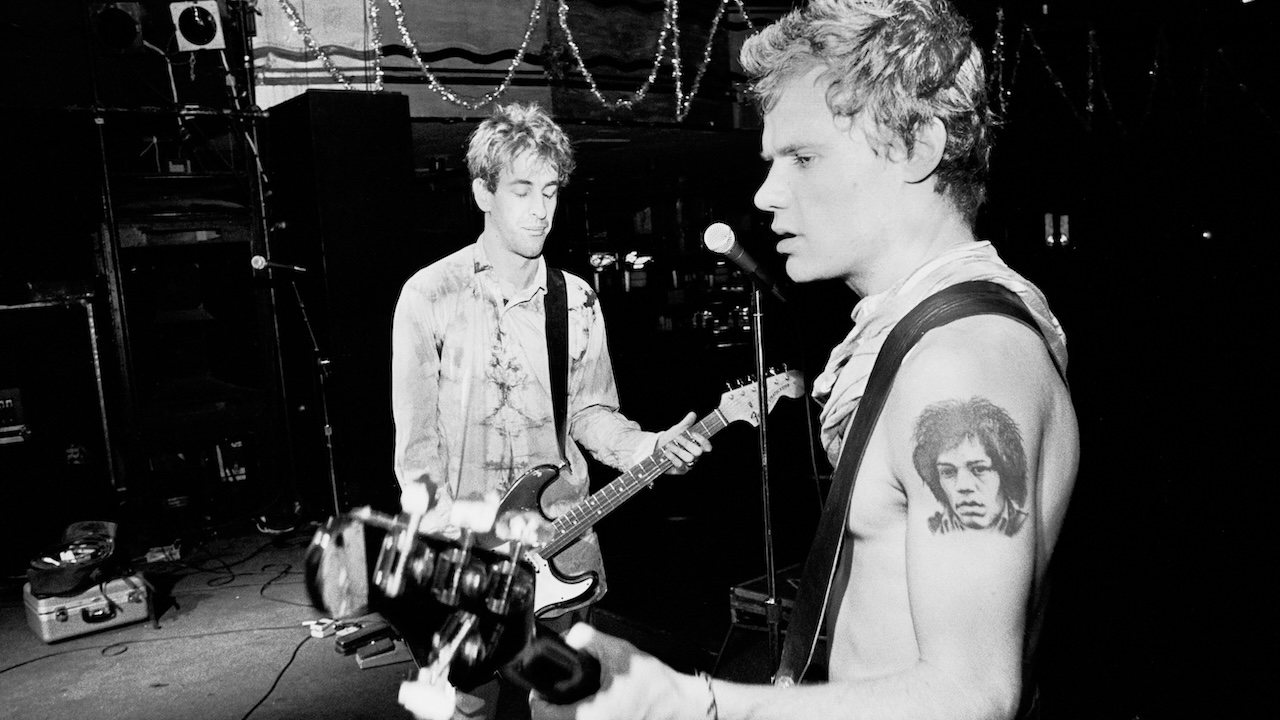When mellow was king: Ozark Mountain Daredevils and the saga of Jackie Blue
Missouri hillbillies the Ozark Mountain Daredevils look back to the mellow times when country rock ruled the US airwaves and Jackie Blue became a radio classic

Select the newsletters you’d like to receive. Then, add your email to sign up.
You are now subscribed
Your newsletter sign-up was successful
Want to add more newsletters?

Every Friday
Louder
Louder’s weekly newsletter is jam-packed with the team’s personal highlights from the last seven days, including features, breaking news, reviews and tons of juicy exclusives from the world of alternative music.

Every Friday
Classic Rock
The Classic Rock newsletter is an essential read for the discerning rock fan. Every week we bring you the news, reviews and the very best features and interviews from our extensive archive. Written by rock fans for rock fans.

Every Friday
Metal Hammer
For the last four decades Metal Hammer has been the world’s greatest metal magazine. Created by metalheads for metalheads, ‘Hammer takes you behind the scenes, closer to the action, and nearer to the bands that you love the most.

Every Friday
Prog
The Prog newsletter brings you the very best of Prog Magazine and our website, every Friday. We'll deliver you the very latest news from the Prog universe, informative features and archive material from Prog’s impressive vault.
In the late 60s and early 70s, the hills and valleys of LA were jammed with ‘cowboys’ peddling country rock. It was the breezy post-hippie days, and if you could strum a mandolin or blow into a jug you were in. But there were a few down-home rockers with roots in the rural south, and among the best were the Ozark Mountain Daredevils.
From Springfield, Missouri, the birthplace of Route 66, the Daredevils debuted in 1973 with a self-titled album spawning backporch-gospel hit If You Wanna Go To Heaven, but are best known for follow-up LP It’ll Shine When It Shines and its monster hit, the sun-baked Jackie Blue.
“You kind of had to be a daredevil to have long hair in the Ozarks,” says bassist/founder Mike ‘Supe’ Granda. “So that’s how we got our name. Luckily it wasn’t too much of a problem for us, because we hung out in a pack. We were a longhaired rock’n’roll band, but we weren’t crazy like, say, Black Oak Arkansas. Our music was mellower, and so were we.”
Those vibes are what landed them a record deal. “A&M wanted to sign us,” says Supe. “They sent a couple guys to one of our gigs. We played, and it wasn’t very good. After the gig, the A&M guys dropped in and said: ‘Well, that was… good,’ but you could tell that they didn’t really like it.
"So we just sat down and broke out a bottle of wine and a case of beer and a big long spliff and we started playing acoustically. We played really well. And they loved it. And they signed us. That’s why our records are mellower than our live show.”
After the release of their debut album, they hit the road with the Doobie Brothers, Chicago and Fairport Convention. As their rep grew, so did the gigs.
“We preferred smaller, more intimate crowds, to be honest,” Supe says. “Our sound was smaller. A lot of times when we played festivals, it didn’t come off too well, because we couldn’t inflate our sound to fill the enormo-dome format. We preferred little theatres to ice hockey rinks. But we played ’em.”
Sign up below to get the latest from Classic Rock, plus exclusive special offers, direct to your inbox!
It’ll Shine When It Shines is a lush rural rock record. According to Supe, it’s due to recording with a mobile unit in a Civil War-era mansion. “It was 500 acres in the middle of nowhere. We laid down thick carpets and thick drapes… We ran the microphones from the truck through the windows of the living room.”
Jackie Blue came from these sessions. As he explains, it wasn’t always about a girl who lives her life ‘free-form style’. “[Ozarks drummer] Larry Lee brought the song to us. He said he wrote it about a guy we knew. Every night, this guy would go out to the nightclub with a wad of money and a pocket full of blow and he’d be out there chasing women.
"So we played this song for about a year. After we recorded the song we went to LA to mix it, and A&M said: ‘You’ve recorded a number one song, but Jackie needs to be a girl.’ So Larry took Steve Cash, our lyricist, into the other room, and three or four hours later they came out and Jackie was a girl. Larry laid his vocals down, and it flipped all of us out.
"We’d been hearing this song about a guy for a year-and-a-half, and all of a sudden it was about a girl. But it sounded great.”
Jackie Blue shot up the US chart to No.3 in 1975. It’s still a rock radio staple. Naturally, the label wanted the band to capitalise on their good fortune.
“When Jackie Blue fell from the top of the charts, A&M said to us: ‘Jackie Blue was great, now give us Jackie Red. C’mon, Jackie Green, Jackie Brown, we’re hot, let’s keep this going.’ We told them that we didn’t approach our music that way, and they said: ‘Oh, really? Well try.’ And we told them no.
So then they hit us with this: move to LA, and we’ll put you on every TV show. You’ll be a gigantic group.’ But we were all starting families, and my little daughters were playing in a crystal-clear creek and breathing crystal-clear air. We had farms, man. I wasn’t about to uproot my family and move them to LA so I could be on The Sonny & Cher Show. So we had a meeting and, as a group, we all decided to stay in Missouri.”
The band toured and recorded throughout the 70s, without regaining momentum. But the adventures continued. “There’s so many stories,” Supe says. “We even ran into the Sex Pistols once. I thought those guys were more entertaining than, you know, Yes and bands like that. I ran into Sid Vicious in the studio hallway. He grabbed my beard. I think it was a friendly tug. He was so wasted, he couldn’t have mustered any kind of animosity,” he laughs.
The Daredevils still play a dozen or so gigs every year. In 2008, Supe published a 500-page history of the band, It Shined: The Saga of The Ozark Mountain Daredevils.
“It took me five years to write,” he explains. “Since it’s been out I probably wrote another 150 pages of shit I forgot the first time. And the story’s not even over yet.”
This feature was originally published in Classic Rock 188, in September 2013. Founding member Steve Cash passed away in 2019.
Classic Rock contributor since 2003. Twenty Five years in music industry (40 if you count teenage xerox fanzines). Bylines for Metal Hammer, Decibel. AOR, Hitlist, Carbon 14, The Noise, Boston Phoenix, and spurious publications of increasing obscurity. Award-winning television producer, radio host, and podcaster. Voted “Best Rock Critic” in Boston twice. Last time was 2002, but still. Has been in over four music videos. True story.

